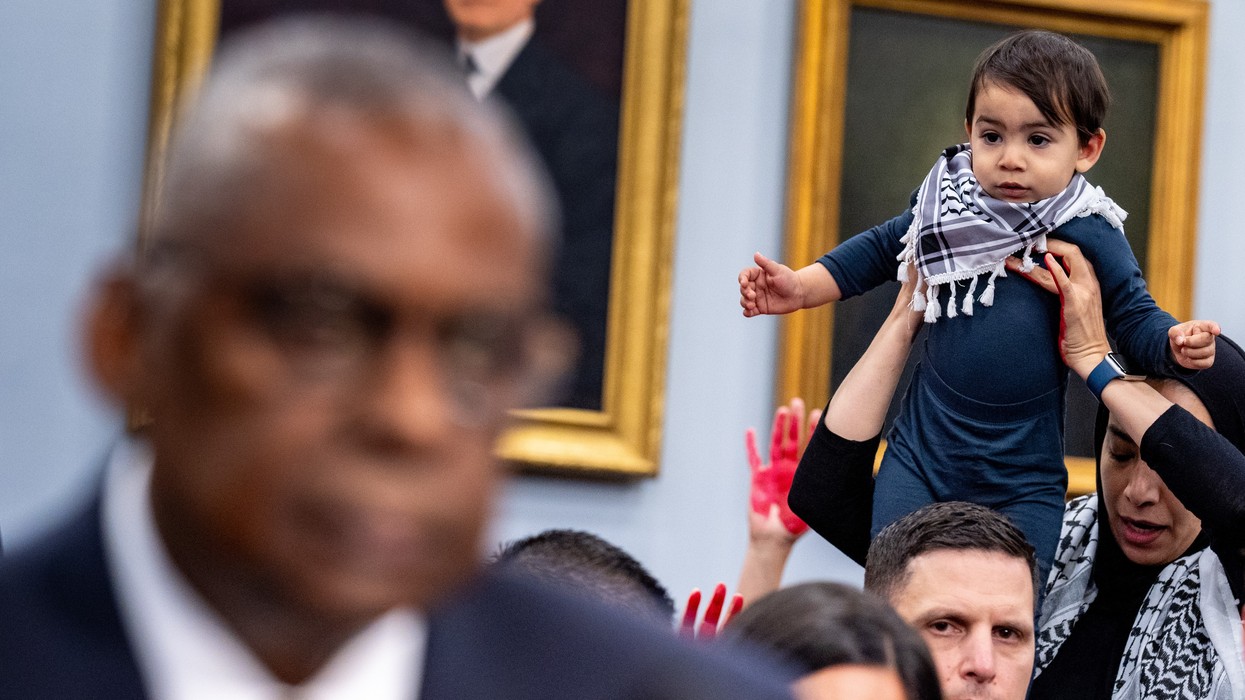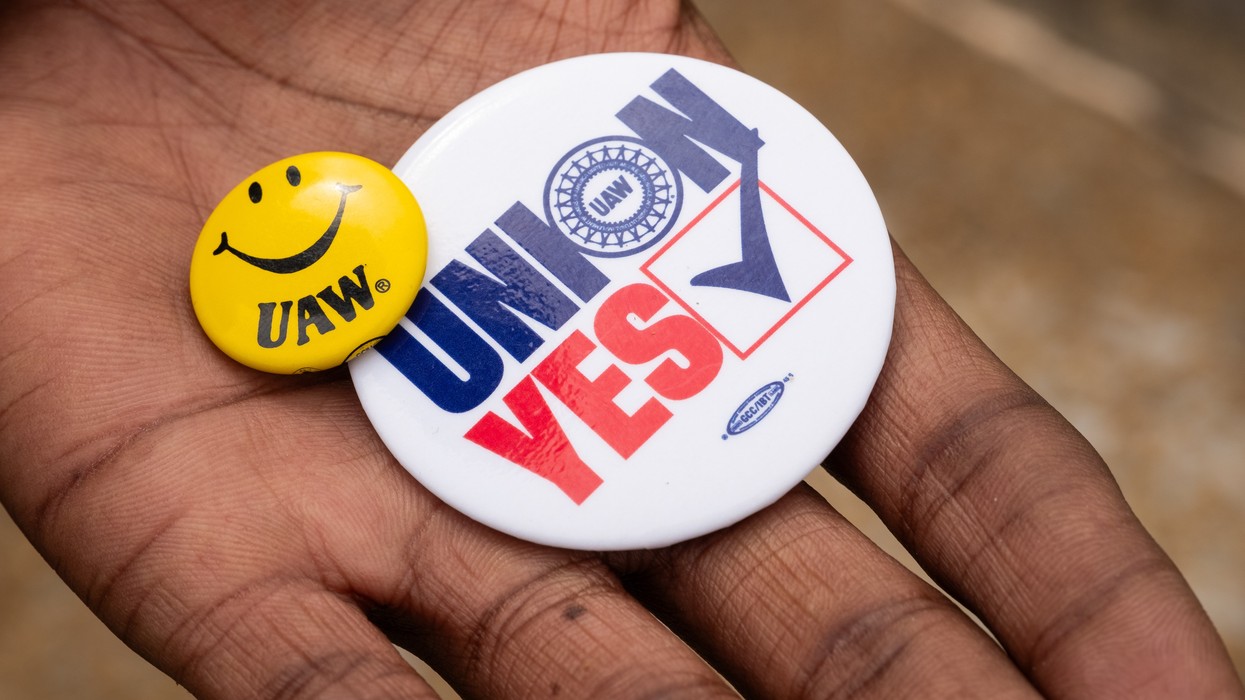March, 18 2011, 08:31am EDT

For Immediate Release
Contact:
Dan Beeton, 202-239-1460
As Aristide Heads Back to Haiti, Governments Should Respect International Law and Not Try to Block his Return, CEPR Co-Director Says
No government should stand in the way of Haiti's former president, Jean-Bertrand Aristide, from returning to Haiti, the Co-Director of the Center for Economic and Policy Research, Mark Weisbrot said Thursday, following news that Aristide was en route to Haiti.
WASHINGTON
No government should stand in the way of Haiti's former president, Jean-Bertrand Aristide, from returning to Haiti, the Co-Director of the Center for Economic and Policy Research, Mark Weisbrot said Thursday, following news that Aristide was en route to Haiti.
Weisbrot noted that there is still a chance that Washington could pressure the government of Haiti to not let Aristide's plane land. "That would be even more outrageous, and would probably provoke a strong reaction within Haiti and from other governments."
Weisbrot added, "President Zuma is to be commended for standing up to the United States government and the UN Secretary General, both of which have attempted to violate international law by preventing President Aristide from returning to his home country."
The International Covenant on Civil and Political Rights (ICCPR), a treaty that the United States has ratified, states that "[n]o one shall be arbitrarily deprived of the right to enter his own country."
"This is another example of how most developing countries respect international law more than the United States does," said Weisbrot. "How can our government preach to others about the rule of law? Or democracy in North Africa, when they do not respect democracy just a few hundred miles from our East Coast?
President Obama personally called South African president Jacob Zuma to urge him to delay Aristide's travel for up to a month. UN Secretary General Ban Ki-moon made a similar phone call.
It has been a long-standing policy of the U.S. government to maintain President Aristide in exile and lobby other governments to do the same. State Department documents released by Wikileaks reveal pressure by U.S. government officials for the governments of Brazil and South Africa to oppose Aristide's return to Haiti as early as 2005. A Wikileaks cable from that year describes U.S. communications with high-level Brazilian officials: "Ambassador and PolCouns [Political Counselor] also stressed continued USG insistence that all efforts must be made to keep Aristide from returning to Haiti or influencing the political process, and asked whether the GOB also remains firm on that point."
Weisbrot added that Aristide's return has "historic significance not only for Haiti but for the entire Western Hemisphere.
"After the 2009 coup in Honduras, where the United States went against the rest of the hemisphere and successfully supported the coup government, Aristide's return marks an end to the era when the United States gets to choose the political leaders of other countries. It is a historic victory for democracy and self-determination."
Aristide was overthrown, for the second time, in a 2004 coup that was organized by the United States and its allies, who cut off international aid to Haiti in the preceding years in order to topple the democratically elected government.
In recent weeks French officials have also stated that Aristide's return before the planned March 20 runoff elections would be "not a very good idea ...we should not add problems to problems."
The Haitian constitution forbids forced exile of Haitian citizens. Article 41 declares that "no individual of Haitian nationality can be deported or forced to leave the country for any reason whatsoever," and Article 41-1 adds that "no Haitian needs a visa to leave the country or to return to it." Despite this, Aristide has always maintained that he was kidnapped and flown out of Haiti by the U.S. government and France in 2004 and flown to the Central African Republic. Save for a brief exile in the Central African Republic, and a trip to Jamaica (which the U.S. government also opposed), he has lived in South Africa ever since.
The Center for Economic and Policy Research (CEPR) was established in 1999 to promote democratic debate on the most important economic and social issues that affect people's lives. In order for citizens to effectively exercise their voices in a democracy, they should be informed about the problems and choices that they face. CEPR is committed to presenting issues in an accurate and understandable manner, so that the public is better prepared to choose among the various policy options.
(202) 293-5380LATEST NEWS
'My Child Is Human': Palestinian American Mother Disrupts Austin Testimony
"Secretary Austin, why are you denying Israel's genocide in Gaza?" advocates asked the defense secretary at a hearing.
Apr 17, 2024
A week after Defense Secretary Lloyd Austin told lawmakers that the U.S. has no "evidence of genocide being created" in Gaza, peace activists disrupted the Pentagon chief's testimony on the Biden administration's 2025 budget request and demanded he acknowledge the humanity of Palestinian children.
"My child is human!" said Nasbeebah Hajjaj, a Palestinian-American woman who held up her 16-month-old son, Hamza. "Stop killing Palestinian children!"
The anti-war group CodePink said Hajjaj immigrated to the U.S. with her family when she was two months old, and has lost approximately 20 family members to Israel's bombardment of Gaza since October.
The group targeted Austin's testimony a month after the Biden administration released its 2025 budget request—a proposal that includes $1.1 trillion in military-related spending. Despite growing calls from U.S. lawmakers and rights advocates, the White House has not announced conditions for military aid to Israel, which has been widely accused of human rights violations as it has assaulted Gaza and blocked humanitarian aid from reaching Palestinians.
Israel's bombardment has killed at least 33,899 Palestinians so far, and more than two dozen people have died of starvation in recent months as international experts have warned parts of northern Gaza are facing famine.
At least 13,000 children have been killed, and the United Nations reported in February that 70% of those killed overall have been women and children—even as Israel and the U.S. have insisted Israeli forces are targeting Hamas.
The International Court of Justice issued a preliminary ruling in January saying Israel is "plausibly" committing genocide in Gaza, and lawmakers including Sen. Elizabeth Warren (D-Mass.) have expressed support for the ruling—but the U.S. has dismissed the court's findings, including at Austin's hearing last week.
While Hajjaj held up her son at Wednesday's hearing, another protester, identified by CodePink as Helen, addressed the defense secretary.
"Secretary Austin, why are you denying Israel's genocide in Gaza? Why are you denying genocide in Gaza?" said Helen, who was arrested after being led out of the hearing. "The whole world sees it! You know the laws of war! You know you have blood on your hands! You have blood on your hands! We have blood on our hands."
The advocates chanted, "Shame on you!" as they were led out of the hearing room.
Outside the hearing room, Hajjaj emphasized that the Biden administration has "the power to stop" Israel's attacks on Gaza by cutting off its military aid—of which the U.S. is the largest international supplier. The Foreign Assistance Act stipulates that the U.S. cannot provide military funding to countries that block American humanitarian aid.
"They just want to continue to arm death and destruction," said Hajjaj.
Keep ReadingShow Less
Report Sounds Alarm Over Growing Role of Big Tech in US Military-Industrial Complex
The paper's author found that the five largest military contracts to major tech firms between 2018 and 2022 "had contract ceilings totaling at least $53 billion combined."
Apr 17, 2024
The center of the U.S. military-industrial complex has been shifting over the past decade from the Washington, D.C. metropolitan area to Northern California—a shift that is accelerating with the rise of artificial intelligence-based systems, according to a report published Wednesday.
The report—entitledHow Big Tech and Silicon Valley Are Transforming the Military-Industrial Complex—was authored by Roberto J. González, a professor of cultural anthropology at San José State University, for the Costs of War Project at Brown University's Watson Institute for International & Public Affairs.
The new paper comes amid the contentious rise of AI-powered lethal autonomous weapons systems, or killer robots; increasing reliance upon AI on battlefields from Gaza to Ukraine; and growing backlash from tech workers opposed to their companies' products and services being used to commit or enable war crimes.
"Although much of the Pentagon's $886 billion budget is spent on conventional weapon systems and goes to well-established
defense giants such as Lockheed Martin, RTX, Northrop Grumman, General Dynamics, Boeing, and BAE Systems, a new political economy is emerging, driven by the imperatives of big tech companies, venture capital (VC), and private equity firms," González wrote.
"As Defense Department officials have sought to adopt AI-enabled systems and secure cloud computing services, they have awarded large multibillion-dollar contracts to Microsoft, Amazon, Google, and Oracle," he added. "At the same time, the Pentagon has increased funding for smaller defense tech startups seeking to 'disrupt' existing markets and 'move fast and break things.'"
The report highlights the rise of a new class of billion-dollar military contractors, "a combination of gargantuan tech firms like Microsoft, Amazon, and Google, and hundreds of smaller, pre-IPO startup companies supported by VC firms."
"The use of drones and AI-enabled weapons systems in Ukraine and Gaza, and a feared AI arms race with China, have fueled the
Pentagon's heavy investment in advanced digital tech," González wrote.
A lack of transparency is obscuring the true value of some of the largest military contracts to tech companies.
"One estimate indicates that U.S. military and intelligence agencies awarded at least $28 billion to Microsoft, Amazon, and Alphabet (Google's parent company) between 2018 and 2022," the report states. "The actual value of these contracts is likely much higher, because many of the largest known contracts with U.S. tech companies are classified and withheld from public procurement databases."
González found that the five largest military contracts to major tech firms between 2018 and 2022 "had contract ceilings totaling at least $53 billion combined."
"Major tech firms are also awarded large subcontracts from relatively obscure intermediaries or 'passthrough' companies that are granted primary contracts from the Pentagon—evading scrutiny and analysis," the paper adds.
González said that multi-year software-as-a-service contracts "could make the Pentagon and CIA more dependent than ever on the expertise of technical experts from the private sector."
The risk of conflicts of interest increases as military-dependent tech companies go public.
"As just one example, since going public, more than half of Palantir Technologies' revenue has come from the federal government," the report states. "Recent Palantir contracts with the U.S. Army Special Operations Command and the Air Force are worth more than $900 million. Palantir stock rose more than 170% in 2023."
There's also the danger of a "revolving door" between Silicon Valley and the Pentagon as many senior government officials "are now gravitating towards defense-related VC or private equity firms as executives or advisers after they retire from public service."
"The traditional 'revolving door' meant that a former defense official might accept an executive position with traditional weapons manufacturers; there are more lucrative options now," González wrote. "At least 50 former defense officials are working in VC and private equity, leveraging their connections with current officials or members of Congress to advance beneficial legislation for defense tech firms in their firms' investment portfolios."
"The implications are significant: The new 'revolving door' will accelerate military and intelligence agency funding for early-stage defense tech startups," the report states.
González details how "overblown, inaccurate, ideological talking points are driving defense funding for Big Tech," including "grandiose claims about the effectiveness of artificial intelligence; the overestimation of China's military and technological capabilities; the idea that America has the ability and duty to protect the world's democratic societies; and a steadfast belief that the best way to preserve U.S. dominance is through a free market that prioritizes corporate needs."
"These perspectives boost demand for military AI, and are promoted by a network of tech executives, venture capitalists, think tank analysts, academic researchers, journalists, and Pentagon leaders," he wrote.
Finally, the report warns that "aggressive Big Tech business models" can rush the development of weapons, endangering both combatants and civilians.
"Members of the armed services and civilians are in danger of being harmed by inadequately tested—or algorithmically flawed—AI-enabled technologies," the paper states. "By nature, VC firms seek rapid returns on investment by quickly bringing a product to market, and then 'cashing out' by either selling the startup or going public. This means that VC-funded defense tech companies are under pressure to produce prototypes quickly and then move to production before adequate testing has occurred."
Keep ReadingShow Less
'A Big, Big Deal': Chattanooga Volkswagen Workers Begin Voting in Key Union Election
"Looking back, you could see this being the first domino in something that changes the entire South," said one labor journalist.
Apr 17, 2024
Volkswagen workers in Chattanooga, Tennessee began voting Wednesday on whether to join the United Auto Workers, a closely watched election seen as a critical test for the emboldened union's ability to organize in the U.S. South.
The election kicked off a month after workers at the Chattanooga plant filed a petition with the National Labor Relations Board (NLRB) formally requesting an election to join the UAW, which secured record-breaking contracts at the Big Three U.S. automakers last year after a historic six-week strike.
Following the hard-fought contract victories, the UAW launched what's been described as the largest union organizing drive in modern U.S. history, targeting nonunion car manufacturers such as Tesla, Toyota, and Volkswagen.
The Chattanooga election marks the third time in a decade that the UAW has tried to organize the Volkswagen plant, which currently has around 4,300 workers. Voting concludes on Friday.
"This election is a big, big deal—probably the most important union election that this country has seen in years," labor journalist Hamilton Nolan said in a Democracy Now! appearance on Wednesday. "Looking back, you could see this being the first domino in something that changes the entire South."
About 4,000 Volkswagen workers in Tennessee are voting on whether to unionize with the United Auto Workers. Labor journalist @hamiltonnolan says it's the most important union vote in years and could be the "first domino" in a wider push to organize the auto industry in the South. pic.twitter.com/RWFnO5KznI
— Democracy Now! (@democracynow) April 17, 2024
Chattanooga workers voiced confidence that this election will be different than 2014 and 2019, when Volkswagen employees voted against joining the UAW by narrow margins.
"We're going to win," Lisa Elliott, a quality control worker at Volkswagen, toldThe Guardian's Steven Greenhouse. "We have the momentum. I know this will be a historic event."
In addition to the Chattanooga effort, the UAW is trying to organize Mercedes-Benz workers in Vance, Alabama. Earlier this month, a supermajority of Mercedes workers in Vance submitted a petition to the NLRB requesting an election to join the UAW.
UAW's organizing efforts have drawn national attention—and ire from anti-union politicians, including the Republican governors of Tennessee, Alabama, Mississippi, and other states in the U.S. South.
Joseph McCartin, a labor historian at Georgetown University, told Greenhouse that "a victory at Volkswagen would make a victory at Mercedes much more likely."
"Victories at both Volkswagen and Mercedes would be nothing less than an earthquake," McCartin added. "This would be the biggest breakthrough in private-sector organizing in decades. It would mean that the anti-union citadel [in the South] that has repulsed effort after organizing effort has been breached."
University of California, Berkeley professor Harley Shaiken echoed that assessment in an interview with The New York Times.
"It would be a revolution for the UAW and for the auto industry," Shaiken said of a UAW win. "It would break the glass ceiling for unions in the South, and would mean more purchasing power for working-class people in that region."
Keep ReadingShow Less
Most Popular


